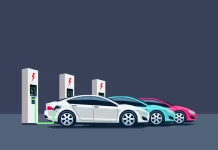The Indian government is actively pursuing its vision of Viksit Bharat by promoting the country’s electric vehicle (EV) ecosystem. To achieve this, the Centre is in the process of establishing a task force aimed at creating a comprehensive roadmap for the EV industry. The Ministry of Heavy Industries (MHI) has communicated this initiative to automakers through a letter obtained by Mint.
Table of Contents
Involvement of Stakeholders
The task force, to be finalized in collaboration with the Federation of Indian Chambers of Commerce and Industry (FICCI) and other relevant agencies, aims to engage stakeholders through workshops and meetings. The letter highlights the importance of gathering insights and recommendations from various stakeholders on electric vehicle adoption and infrastructure development.
Key Focus Areas
According to the letter, the task force has identified 11 crucial topics to develop an action plan for EV adoption in India. Various agencies have already commenced work to lay the groundwork for India’s leadership in e-mobility transition globally. These agencies are actively engaging with original equipment manufacturers (OEMs) to progress on the automotive vision plan for Viksit Bharat 2047.
Roles of Different Agencies
Different agencies have been assigned specific roles to expedite the transition to electric mobility. For instance, GIZ and Ficci will focus on charging infrastructure, while the Rocky Mountain Institute (RMI) will concentrate on two- and three-wheelers. The Indian Battery Swapping Association (IBSA) is tasked with spearheading initiatives on battery swapping, and the International Council on Clean Transportation (ICCT) will handle matters related to electric trucks.
New Policies and Schemes
In recent developments, the government announced the Electric Mobility Promotion Scheme (EMPS) 2024, with a focus on e-two-wheelers and e-three-wheelers. This scheme replaces the Faster Adoption and Manufacturing of Electric Vehicles II (FAME II) scheme, which concluded in March 2024. Additionally, the New Electric Vehicle Policy 2024 aims to promote India as a manufacturing hub for EVs by offering incentives to companies setting up manufacturing facilities within the country.
Positive Growth Trends
Despite subsidy cuts and regulatory shifts, electric vehicle sales have seen a robust increase of over 45% in 2024. The total EV registrations in 2023 surpassed 1.5 million units, reflecting a significant growth compared to previous years. This has resulted in an overall EV penetration rate of 6.3% in the country, up from 4.8% in 2022.
Conclusion
The collaborative efforts of the government, industry stakeholders, and various agencies underscore a concerted push towards electric mobility in India. With proactive policies and targeted initiatives, India is poised to emerge as a prominent player in the global electric vehicle market, aligning with its vision of a sustainable and technologically advanced future.






